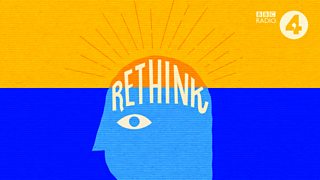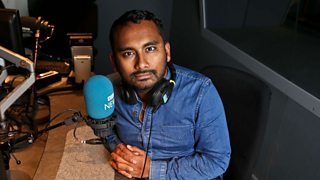How the pandemic has made us rethink our bodies
When lockdown was announced and our ‘normal’ activities were largely replaced with staying indoors, it became easy to introspect. We focused inwards on our bodily sensations and suddenly the slightest cough felt as though it could be a symptom of something sinister. Some focused their energy on fitness and exercise, others on using whatever flour they could get their hands on to create comforting, enjoyable treats. Many did both. We began to focus both on what our bodies wanted, and what they needed.
As part of Rethink, a series of audio essays considering a different life after lockdown, several great minds have contemplated how the current COVID-19 pandemic has made us rethink our bodies. Here’s what they have to say.
Will we ever learn to be intimate the way we used to be?

Physical contact, or intimacy, as writer Mohammed Hanif puts it, is something that has become a rare commodity of late. If we’re lucky enough to see family and friends at a distance, we can no longer greet them with hugs or kisses, and even the more formal handshake is now a big no-no.
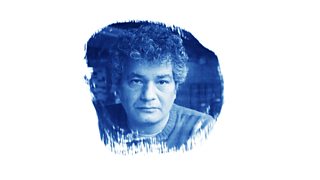
“Will we ever learn to be intimate the way we used to be?” asks Mohammed. He wonders if we will ever again sneak up on friends or nod off on a stranger’s shoulder after a long day.
While we miss the closeness we once took for granted with those we love, Mohammed questions whether public displays of affection had become too much, if the world had become too intimate.
“Why were we hugging strangers at the funerals of people we found irritating when they were alive? Why were we patting cheeks of cute children in parks?”
Now he worries about standing guard over his son with a bottle of sanitiser, lest a stranger should dare tousle his hair. “Maybe one day we won’t be ask scared as we are now.” There is still hope for the huggers amongst us.
Are you a morning or an evening person?
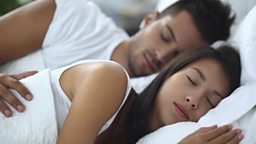
“Are you an evening person, are you a morning person, or are you somewhere in between?” asks Professor of Neuroscience and author of 'Why We Sleep' Matthew Walker. Apparently we don’t get much say in the matter, as it’s largely hard wired within us.
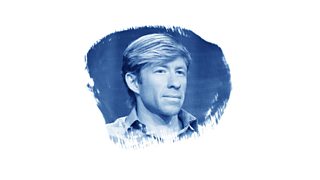
According to emerging data from sleep tracking companies, our sleep has changed recently: people are going to bed at different times from ‘normal’ and are waking up a little later.
Matthew explains that we are starting to sleep more in harmony with our chronotype – that is, whether we are morning or evening people. This could revolutionise how we see sleep in future.
In future, companies could discover the preferred sleep times of their employees and accommodate these, where possible, within their work schedules.
When people sleep in a way that is more compatible with their biology, their work will likely improve, as more sleep equals greater productivity.
Well-rested people utilise fewer healthcare facilities - there is an intimate link between our sleep health and immune health.Matthew Walker
According to Matthew, well-rested people also utilise fewer healthcare facilities and there is an intimate link between our sleep health and immune health. One study found that those who slept poorly in the week before getting a standard flu shot produced less than 50% of the normal antibody response. “There will be a point when we have a vaccine for COVID-19” says Matthew. “Can we try to enhance the effectiveness of that vaccination simply by timing that vaccination when people are well rested?” We’ll take any excuse for a lie in!
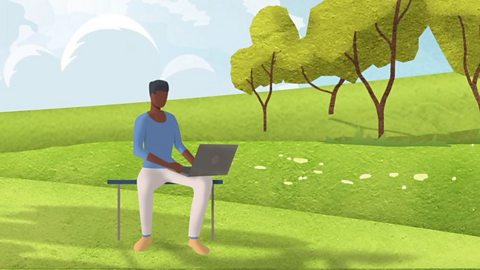
Is the coronavirus crisis a chance to reset the world?
主播大秀 Ideas looks at the crises that have led to profound changes in society
Our views on face masks are changing
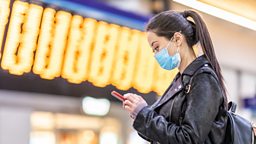
In just a few weeks, masks have gone from something we associate with medical professionals to a staple part of our armoury when leaving the house: phone, wallet, keys, mask? “Masks are prompting us not only to reassess our everyday hygiene, but also to think about how we judge people’s facial expressions”, says lecturer, Dr Christine ‘Xine’ Yao.

Far from just being seen as a useful method of personal protection, masks now also have other connotations. “In the media, images of mask-wearing East Asians are synonymous with the coronavirus and reinforce Trump’s ‘Chinese Virus’ nickname for COVID-19” says Xine.
“Although in Asia masks are understood as a collective good, elsewhere this protective measure is seen as alienating.”
Masks have gone from something we associate with medical professionals to a staple part of our armoury when leaving the house.
Paradoxically, Xine explains, East Asians are at greater risk of being attacked as scapegoats for spreading the virus, when in fact they are trying to prevent it. “Although in Asia masks are seen as a collective good, elsewhere this protective measure is seen as alienating.” She wonders whether, after the pandemic, mask-wearing will become a more common practice worldwide, and if this will help us to re-evaluate our definition of what, and indeed who, we consider to be anti-social.
Has your perspective shifted from outward appearance to inner comfort?

For those of us who found ourselves working from home for the first time, the newfound sartorial freedom was intoxicating. Ties and bras were cast aside and replaced with t shirts and jogging bottoms. At most, a shirt or blouse would be put on for video conferences, with the cameras angled in such a way as to disguise the pyjamas and slippers that clad our bottom halves.
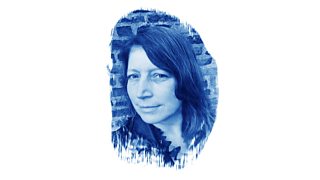
“Has your perspective shifted from outward appearance to inner comfort?” asks political philosopher Clare Chambers. Or perhaps looking good makes you feel better? Clare notes that lockdown offers us “a period of invisibility, a space where we are not always on display ... it lets us experiment, to find out which things we do to our bodies make us feel good and which don’t.”
But equally, with more of our social interactions occurring online, some could feel more pressure to edit, cultivate and curate the virtual image they present. Could this pandemic allow us to let this go?
Now that we are keenly aware of protecting and preserving our health and wellbeing from a debilitating, widespread illness, Clare wonders if we could rethink our bodies, “emphasising their health and their function as their fundamental value. Perhaps, the virus could pull us back from the appearance-obsessed visual culture that has caused so much harm to our mental health.”
Rethink on Radio 4
-
![]()
主播大秀 Rethink
How the world should change after the coronavirus pandemic.
-
![]()
Is the coronavirus crisis a chance to reset the world?
The 主播大秀's Amol Rajan looks back through history at times when crises have led to profound changes in society.
-
![]()
Rethink: The Edge of Change
Amol Rajan and guests discuss how the coronavirus pandemic has created an opportunity to reshape our world.
-
![]()
Why we need to Rethink just about everything
Influential thinkers suggest post-Covid-19 opportunities to effect lasting change.
